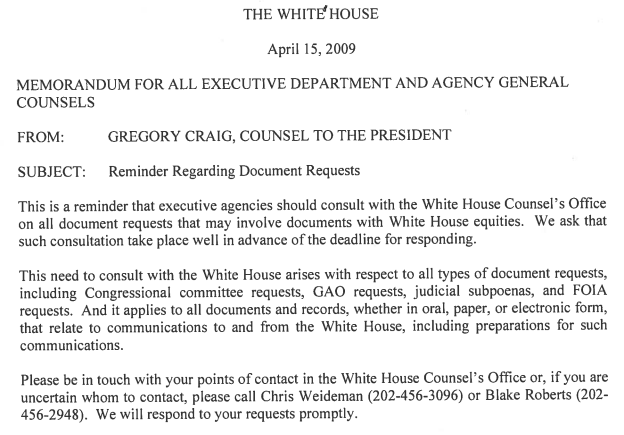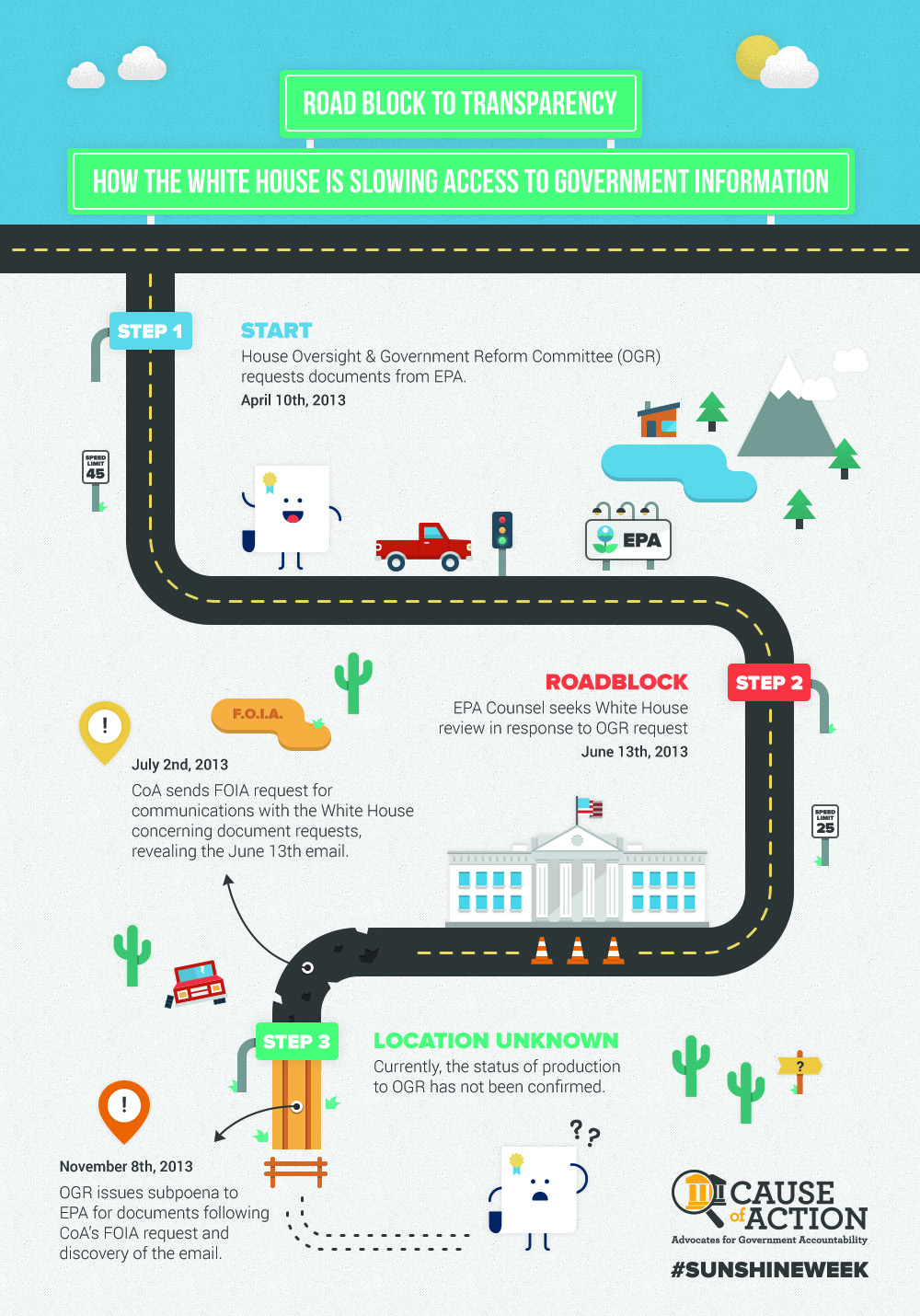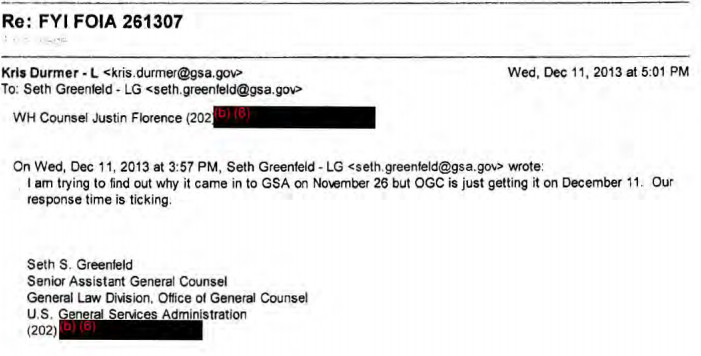January 16, 2015, 10:30 am
Six recommendations to make Washington more transparent
By Dan Epstein
The 114th Congress, which convened on January 6, faces a deeply uncomfortable reality: The American people simply don’t trust their government. Fully two-thirds of Americans believe that Washington is on the wrong track. Public approval of Congress currently hovers around 15 percent—only one point above its all-time low.
The incoming Congress must seek to address this crisis of confidence. Our elected officials can start by taking up transparency and accountability issues to make the government more accountable to taxpayers.
Cause of Action recommends that Congress act in six specific policy areas:
Require Inspectors General to Actually Investigate. Perhaps the most important pro-transparency initiative that Congress can implement is ensuring compliance with the Inspector General Act. Under the Act, Inspectors General are authorized to conduct full investigations when they receive tips that illegal activity is occurring at a federal agency.
This topic is particularly newsworthy given the recent report from the Treasury Inspector General for Tax Administration (TIGTA) confirming that the IRS targeted certain conservative nonprofits based on their political beliefs. However, TIGTA’s report was based only on an audit and not a full investigation. This limited inquiry into IRS’s clearly inappropriate behavior raised more questions than it answered.
In such situations, Inspectors General—whether at the IRS or any other federal agency—should conduct investigations, based upon compulsory interrogatories, subpoenas, and depositions. Audits, which are designed to review program effectiveness, are not the appropriate method of identifying and resolving allegations of illegality, remediable only through an investigative process.
Reintroduce the Grant Act. The Grant Act, originally introduced by then-Rep. James Lankford (R-Okla.) in 2011, is a straightforward bill that would make the federal grant process transparent. It requires federal agencies to establish uniform standards for how they notice, award, and disclose competitive grants. It would also require agencies to rank grant applicants according to those standards—and make them justify any deviation from those rankings. Ultimately, this would allow taxpayers to ensure that federal agencies are awarding grants using a merit-based—and not a politicized—process.
Police Fraud. In 2013, 3.5 percent of all federal payments were improperly awarded—a sum reaching $106 billion. Congress should conduct oversight to ensure that agencies and the Department of Justice in particular are enforcing anti-fraud laws like the False Claims Act, the Improper Payments Information Act, and the Program Fraud Civil Remedies Act.
The U.S. Government Accountability Office reports that most Inspectors General fail to enforce the Program Fraud Civil Remedies Act. Further, public reports by federal agencies that merely identify allegations of fraud (like an audit) have barred whistleblowers from pursuing claims under the False Claims Act even when the feds fail to remedy the abuses.
Congress must ensure that these laws designed to empower whistleblowers are not being misread to incentivize agency failures to prevent fraud.
Hold the White House Accountable. In 2009, the White House, secretly demanded that federal agencies keep it apprised of any document requests containing “White House equities”—a term undefined by statute or regulation. Notwithstanding this lack of clarity, the White House obstructs congressional oversight and violates the spirit of FOIA when its political staff chills public oversight for the benefit of the President’s political image.
Congress should increase its oversight over the FOIA process to prevent the White House’s political offices from meddling into records requests to agencies or otherwise amend FOIA to subject those political offices to greater transparency.
Ensure Agencies Follow the Law. The Federal Records Act requires that agencies notify the Archivist of the United States if there is a proposed removal or destruction of records. The Internal Revenue Services’ failure to properly notify the Archivist regarding the supposed destruction of Lois Lerner’s emails shows that this process must be reformed.
Congress can strengthen enforcement of the Federal Records Act by reviewing the reporting process. Congress should also require that agencies create multiple sets of electronic back-ups to preserve emails and other important data.
Encourage FOIA Compliance. The Freedom of Information Act has been updated numerous times to keep pace with changes in technology, yet federal agencies continue to find new ways to avoid transparency. For example, while text messages involving official government business are records subject to FOIA, some agencies simply do not know how to locate and search for these records, disenfranchising the public of information. Another problem, reflected by the 30,000 “lost” and then later “found” Lois Lerner e-mails, is that agencies routinely destroy records – a crime – without any liability.
In light of this, Congress should conduct aggressive oversight to deter agencies from destroying or improperly withholding relevant records.
Effective congressional oversight would demonstrate to the public that the 114th Congress is serious about wisely stewarding taxpayer money and protecting the public from arbitrary and abusive executive power. It’s time for our elected officials to prove that they’re serious about making government work for, rather than against, the American people.
Epstein is the executive director of Cause of Action, a non-partisan organization that uses public advocacy and legal reform tools to ensure greater transparency in government, protect taxpayer interests and promote economic freedom.


